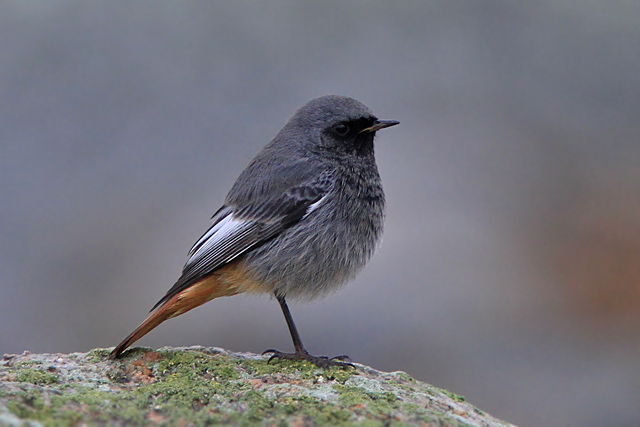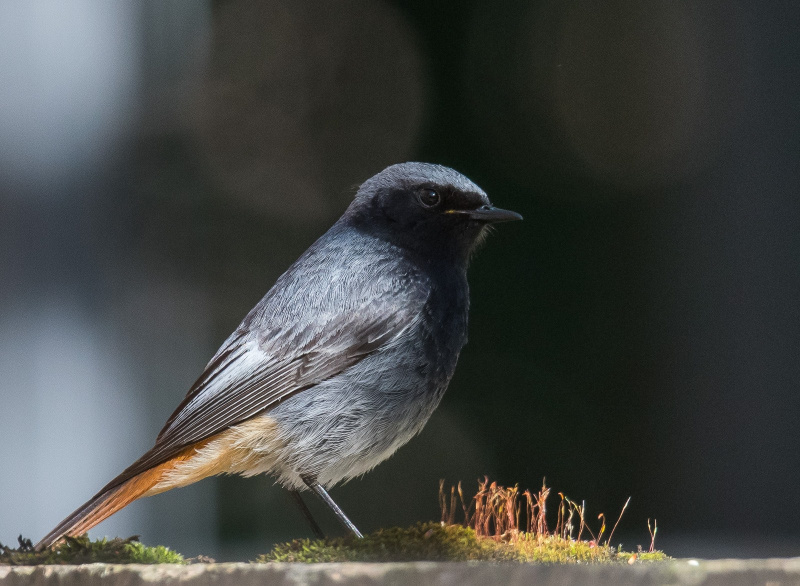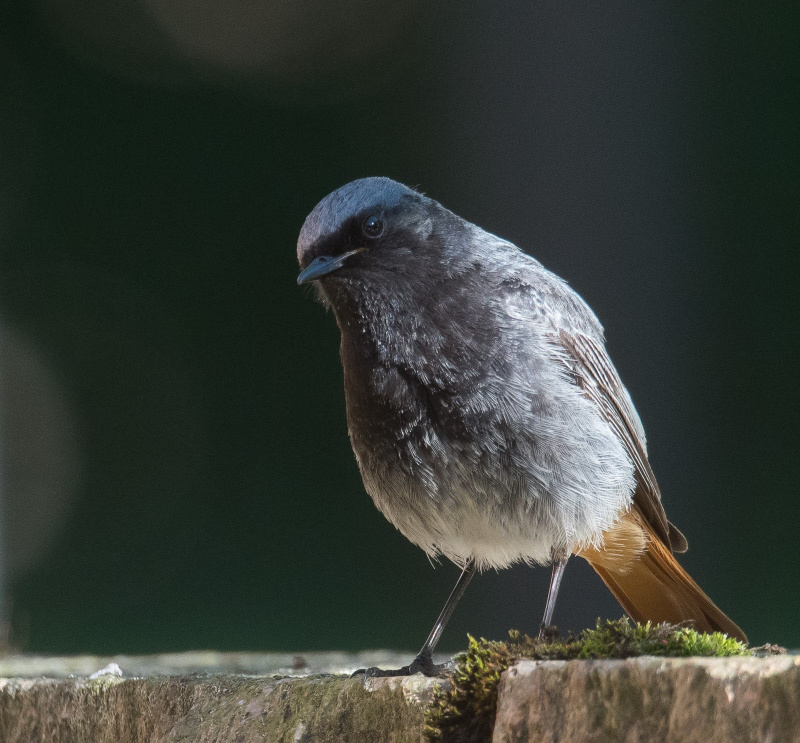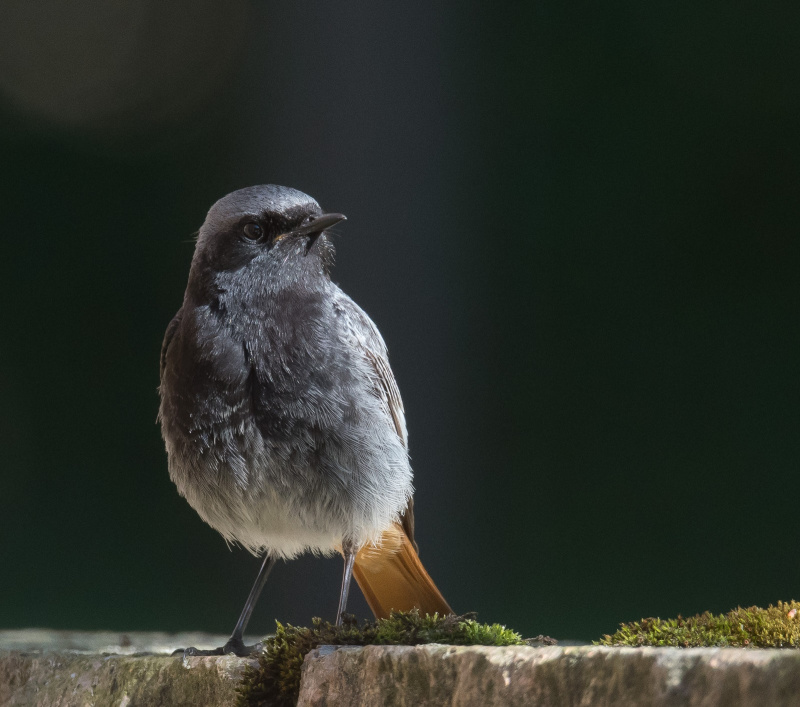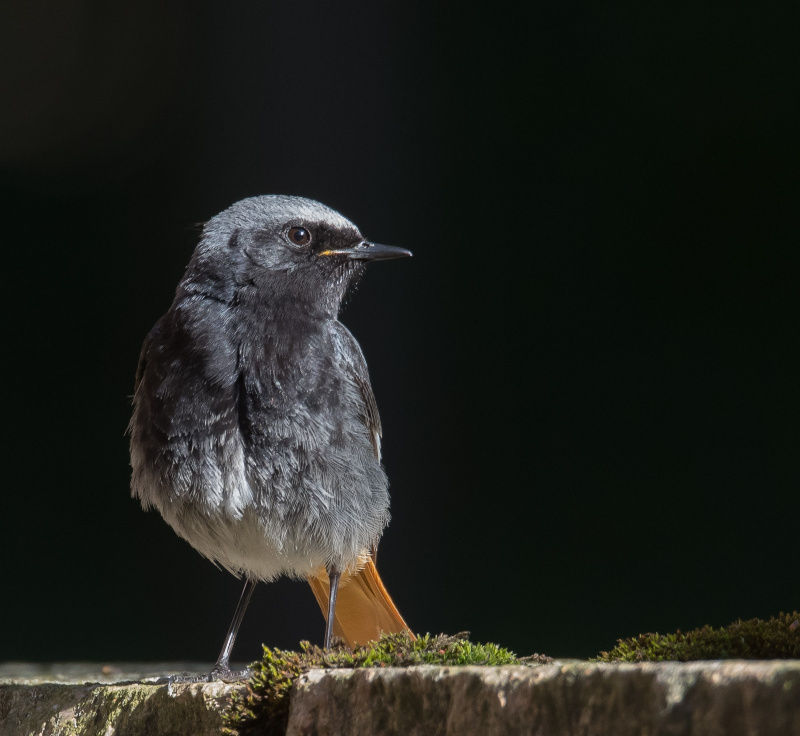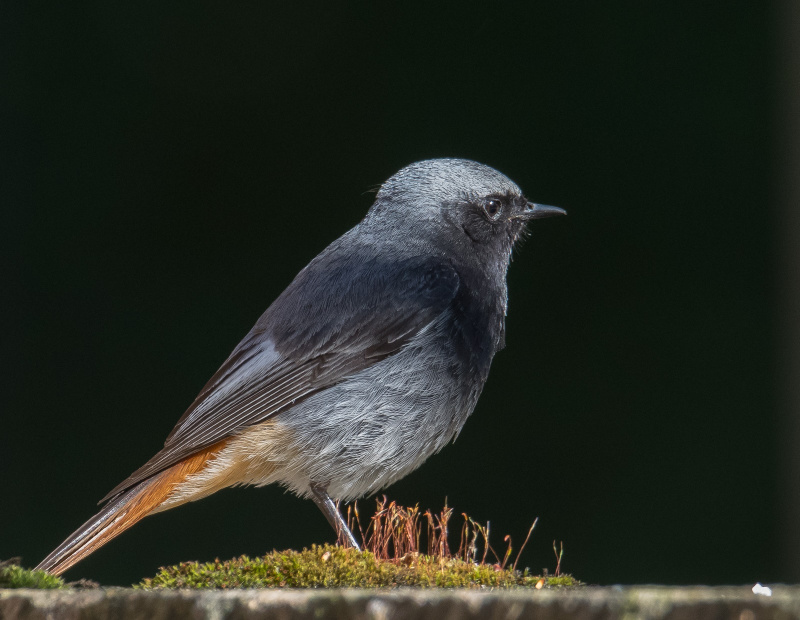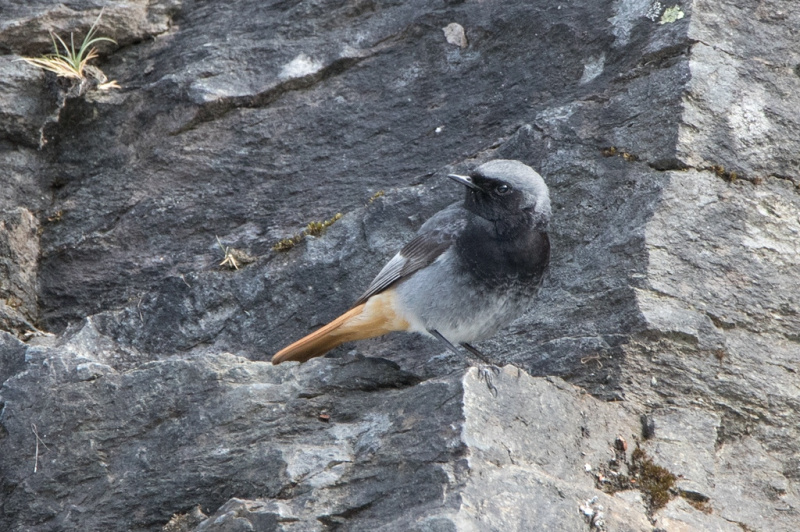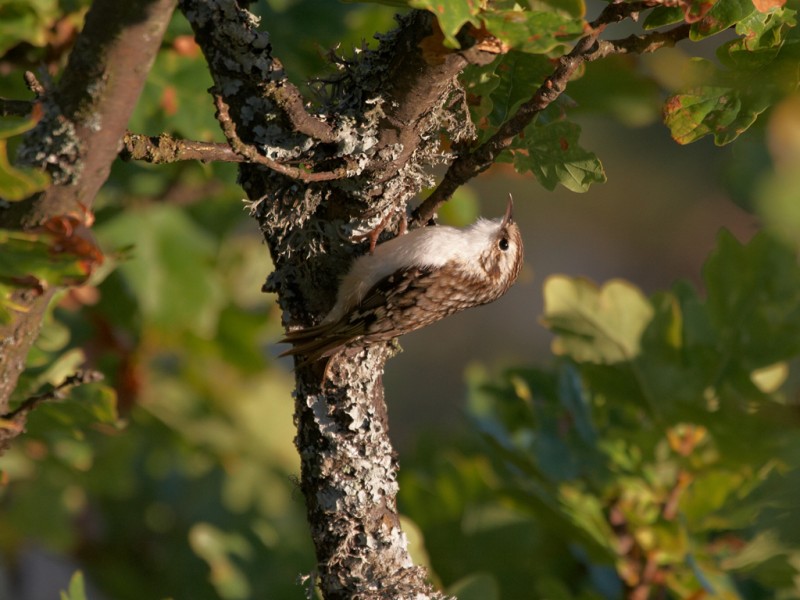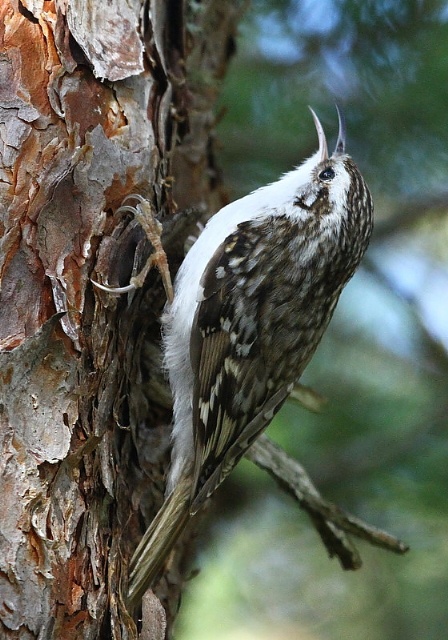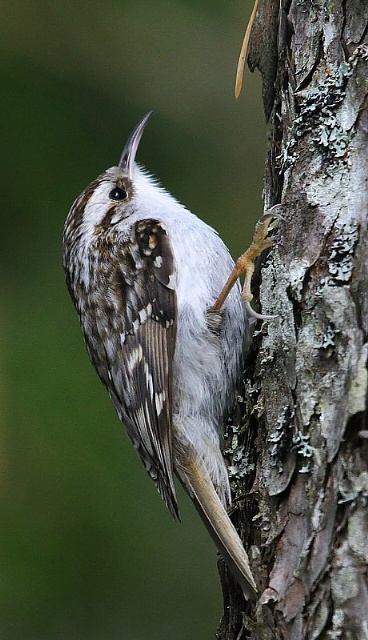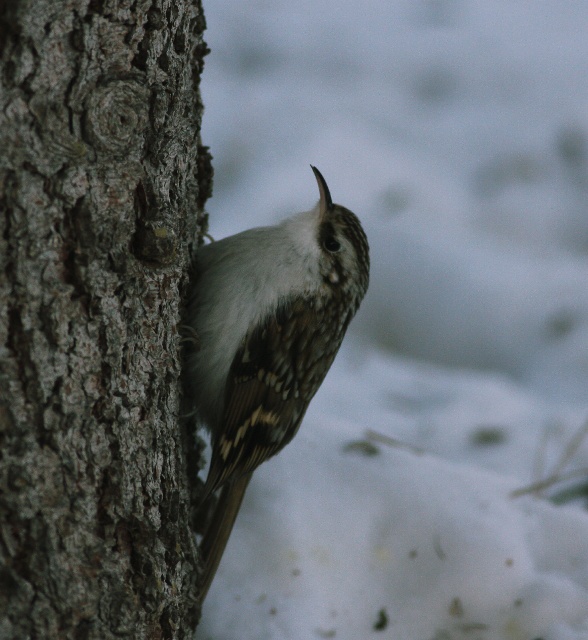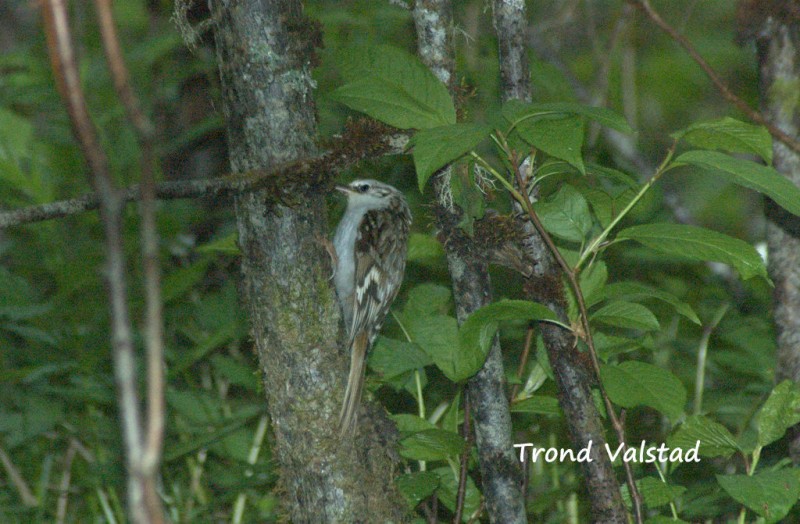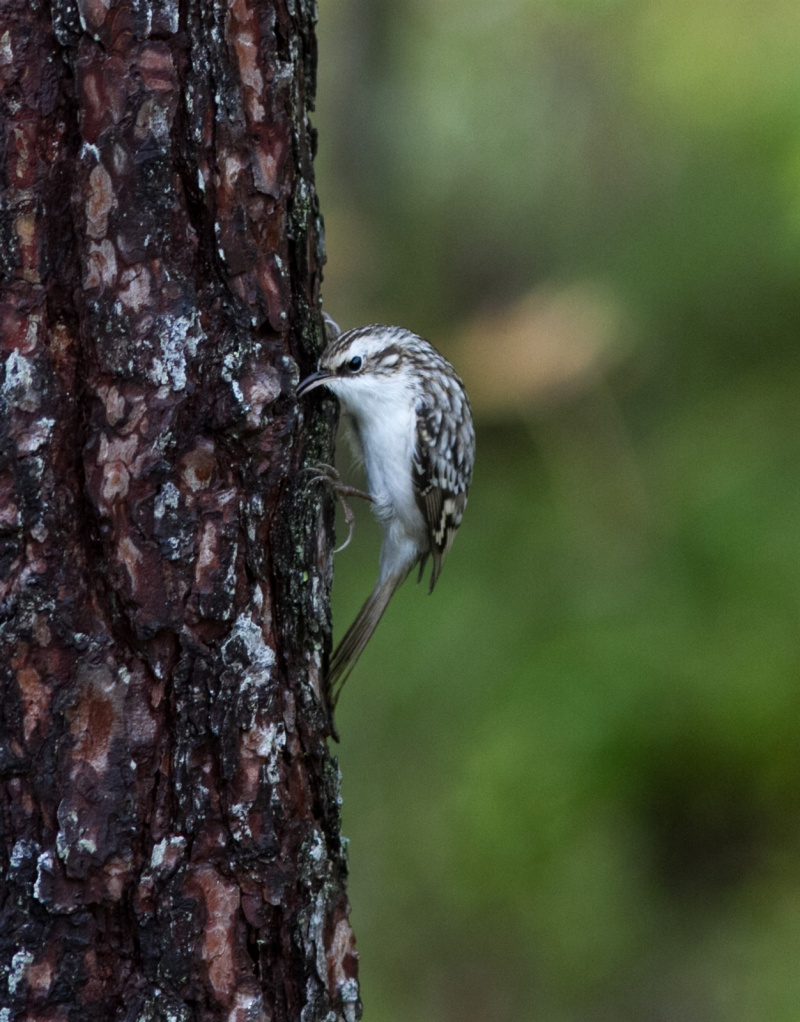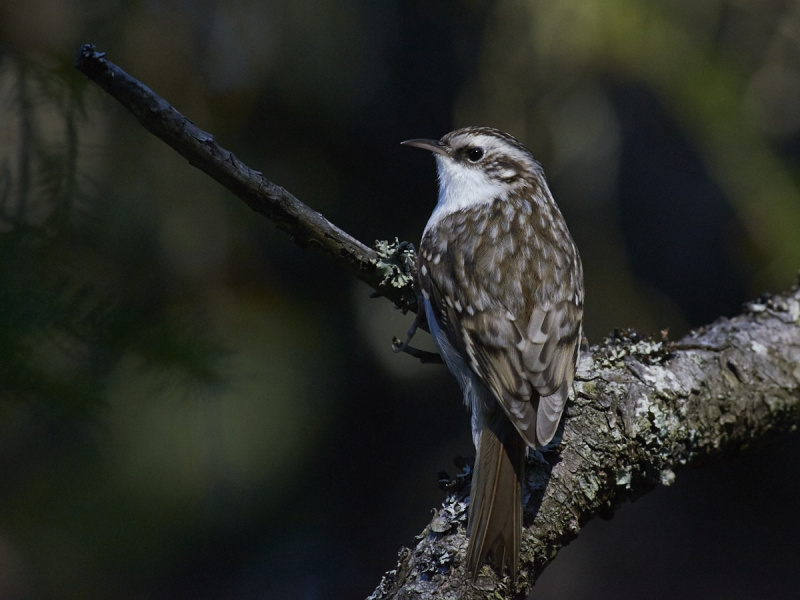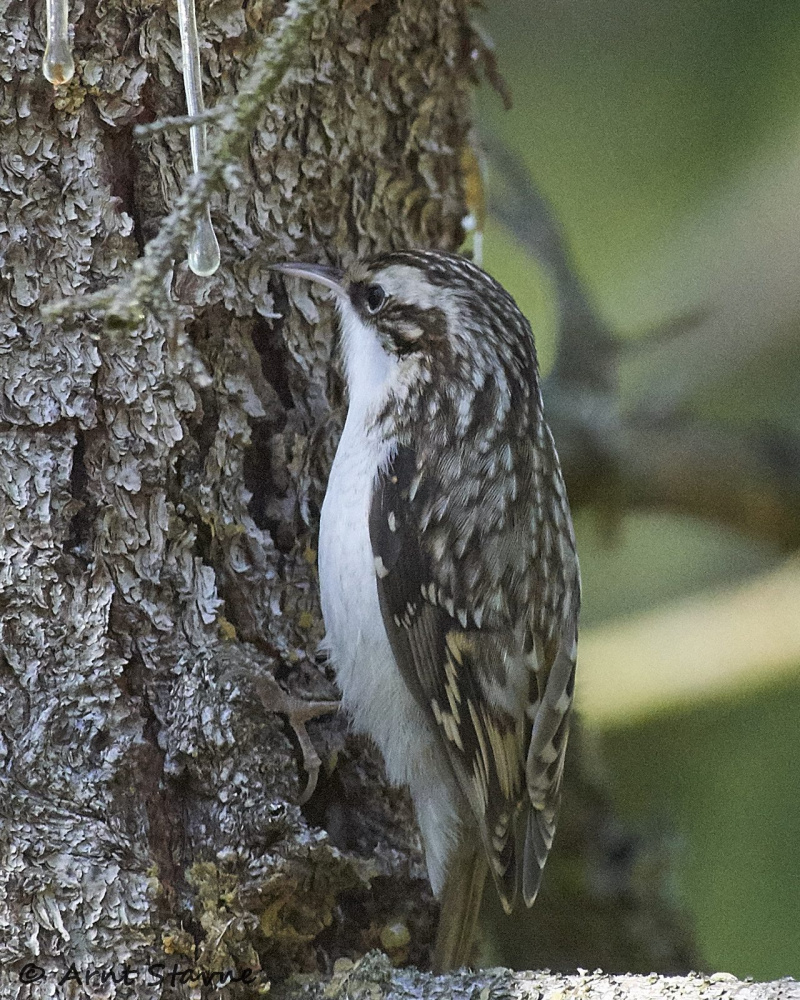Black Redstart (Phoenicurus ochruros)
Treecreeper (Certhia familiaris)
Male: Charcoal to black plumage, with rufous red tail, pale belly and pale wing-panel (south-eastern subspecies with rufous belly and no wing-panel). Female: Grey brown overall, except rufous tail. Lacks the orange tinge to breast and belly of female Common Redstart. Juveniles resembles the adult female, and lacks the buff speckles of congeners. May jump around on the ground like CR, but are more prone to run. Also shows a more erect posture.
Sound:Song consists of three parts and is distinct if heard well. It opens with some clear notes that may form a trill, which are then followed by a pause. Next part is rather unique, and sounds as if shaking a handful of gravel. The phrase then usually closes with a couple of trills. The "gravel-part" does not carry as far as the rest of the song. Alarm call is a chat-like alternation between short, high-pitched "wit" sounds, and series of hard and dry "teck".
Song:
Distribution:
Wikipedia: map (se also Xeno-canto below)
Ecology:Birdlife ecology
Links:
Observation.org Latest observations
Image search Flickr NB! May give other species
CCUnmistakable, except in areas where it coexists with Short-toed Treecreeper. Differs from said species in pure white flanks (sub-species macrodactyla has faintly buff flanks but not as marked as in Short-toed), shorter and only moderately curved bill, hind-claw as long as hind-toe and "notched" wing-bar (uneven "steps"). Tips of primaries with buffish/white tips/fringes extending along inner web. Mostly distinguished from Short-toed by call, and identification exclusively by plumage characters difficult in areas where both species occur.
Sound:Contact call a drawn, high-pitched "tzreeee". Similar to Goldcrest in timbre, but of longer duration with a vibrating and slightly rolling tone. Generally repeated in evenly paced, slow series (unlike Goldcrest). Song a short, continuous three-part phrase. Each phrase starts with a few contact call-like notes followed by a Willow Warbler-like descending part, which then jumps to a few descending high notes to form a marked conclusion. Note that "mixed singers" are not uncommon in areas where both species of treecreepers occur.
Song:
Distribution:
Xeno-canto: map
Ecology:Birdlife ecology
Links:
Observation.org Latest observations
Image search Flickr NB! May give other species
CC
 English
English Albanian
Albanian
 Armenian
Armenian
 Bulgarian
Bulgarian
 Catalan
Catalan
 Croatian
Croatian
 Czech
Czech
 Danish
Danish
 Dutch
Dutch
 Finnish
Finnish
 French
French
 Georgian
Georgian
 German
German
 Greek
Greek
 Hungarian
Hungarian
 Italian
Italian
 Latvian
Latvian
 Lithuanian
Lithuanian
 Macedonian
Macedonian
 Norwegian
Norwegian
 Polish
Polish
 Portuguese
Portuguese
 Romanian
Romanian
 Russian
Russian
 Sami : Lule sami
Sami : Lule sami
 Sami : North sami
Sami : North sami
 Sami : South sami
Sami : South sami
 Scientific names
Scientific names
 Serbian
Serbian
 Spanish
Spanish
 Swedish
Swedish
 Ukrainian
Ukrainian


